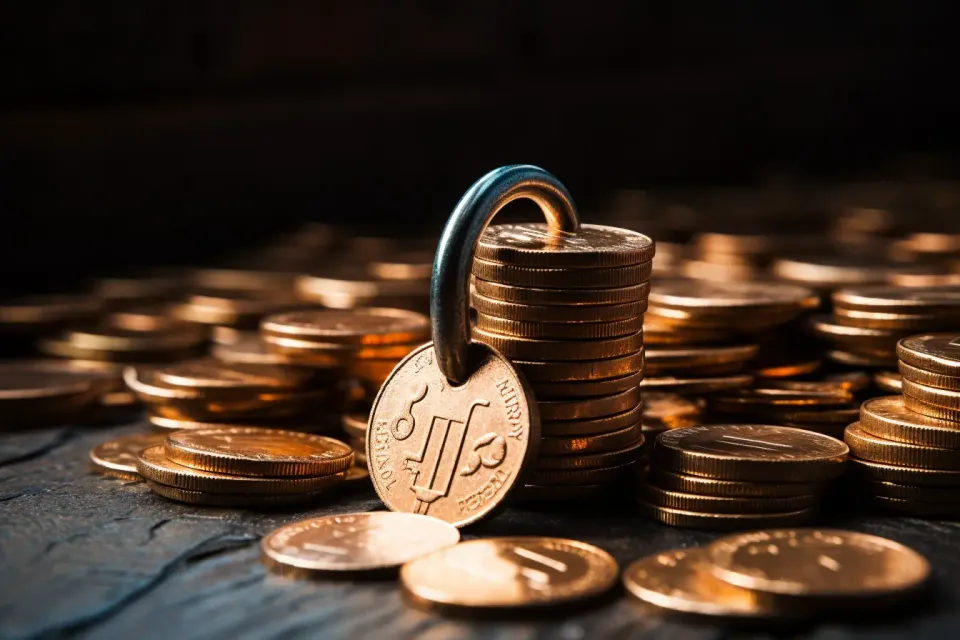Custodial and Non-custodial Cryptocurrency Wallet Complete Guide
How cryptocurrencies have grown to be what they are now is unprecedented. New coins are being created at an incredible rate, and just as the number of tokens is increasing, the options available to hold onto your precious digital currency continue evolving. You can go with either custodial services (where you rely on someone else to store your assets) or non-custodial services that allow more investors to be in full control - each comes with its own pros/cons.
As seen in the physical world, everything valuable is likely to be on the radar of malicious actors, hence, the best way to keep them is of utmost importance. Different crypto stakeholders have put security innovations forward to ensure crypto is kept safe. From multisig security and 2FA authentication to anti-money laundering checks, the security measures are numerous, yet it is down to the users to decide which solution suits their preference enough to ensure the funds’ safety. Crypto custody is grouped into two types based on the amount of control the investor retains over its assets.
This article will look at both types, and help make informed decisions about which will suit your crypto investment needs.
Crypto Wallet: What Exactly Is It?
How do you keep your fiat currency? In a bank account. Cryptocurrencies work the same way; you keep them in a crypto wallet. These can be online or physical devices. Every crypto wallet has two keys.
The public key, which is the first type, functions like an address. In any exchange of cryptocurrencies, the beneficiary of the transaction provides you with the public key to make payment to that crypto wallet right away. The same thing happens when you want to receive cryptocurrency.
Some providers allow a single wallet to have multiple public keys. Simply put, it means that a crypto custodian can give out several addresses to receive cryptos to the same account.
The private key is best described as a secret key. Think of it as the access card to a treasure chest. This key gives complete access to the funds in a crypto wallet. Therefore, it is essential that it is kept securely. Losing it could be devastating. You can keep your private keys yourself, or have a custodian to keep it for you.
Custodial Wallets
The prime example of a custodial wallet would be a cryptocurrency exchange. At least this much is true for centralized exchanges. They have users deposit funds with them and subsequently store the assets on behalf of the customers. Of course, users are given opportunity to access these funds via credentials creating upon registration. Other types of custodial wallets would be custody providers whose sole purpose is to custody funds without acting as an exchange. Since this model is notoriously difficult to monetize, exchange custody is much more prevalent.
Pros
- Recovery process for misplaced passwords.
We are all human, and we sometimes forget things. There have been numerous reports of cryptocurrency owners forgetting their mnemonic seeds and being locked out of their wallets. If this occurs, custodial wallets offer backup services that allow the users a backdoor entry to their accounts. In case users need help with their wallets, the custodial wallet providers also offer customer support services.
Convenience
Custodial wallets are the more popular option of the two because of their ease of use. Users can use them to trade on popular cryptocurrency exchanges with no difficulties, and the lack of technical know-how in using these wallets endear many to these centralized exchanges.
Cons
- KYC process
While custodial wallets are good at ensuring trust, they are not always in line with blockchain tenets of anonymity. Sometime they require new users to prove their identity before offering unrestricted access. This is done using KYC and AML verifications.
The KYC and AML processes can be hectic, and their complexity varies from one service provider to another. Non-custodial wallets are straightforward and require no verification before an account is opened.
- Safety
These types of wallets are often targeted by hackers or are part of wider rug-pull schemes. Malicious actors know their ways to breach provider’s hot wallets, and although many wallet providers are keeping a balance between hot and cold storage, funds kept in hot wallets are rarely a negligible amounts, hence their loss causes significant problems to everyone involved. Mind you, the likelihood of hacking non-custodial wallets isn’t much less, depending on how well an investor secures the private key.
- No offline access
Custodial wallets can be typically accessed using the internet. Without offline means of access, which can be a drawback in certain situations.
Non-custodial (Autonomous) Wallet
The term 'autonomy of control' typically describes non-custodial types of wallets. This system allows the crypto custodian to have a hundred percent control of funds and assets, including private keys, with no form of interference.
Non-custodial wallets are fully controlled by a user who holds full access through private key. This way, the user typically interacts directly with the blockchain network instead of using a custodial middleman. When it comes to non-custodial wallets, we normally divide them into hardware and online.
The former looks more like storage devices with screens and buttons that allow for accessing the device. They must be connected with a computer through Bluetooth or USB connections, and the transaction is finalized offline as the private key is not cloud-based, ensuring it cannot be tampered with when connected with an infected computer.
At wallet creation, the user is given a particular set of words, between 12 to 24 words, that follows a distinct pattern. This set of words, best known as a seed phrase, is required to perform transactions. And in case of a system shutdown, the phrase must be provided to gain access to the cryptocurrency wallet.
In this system, it’s solely the user who is tasked with their funds’ safety.
Pros
- Autonomy
Third-party interference is not an option for non-custodial wallets, meaning that the users have complete autonomy and authority over their cryptocurrencies. Here, the private keys and seed phrase remain with the users, hence they access the wallets at their sole discretion.
- Speed in withdrawal
During withdrawals, the term 'instantaneous' is used to describe the transaction speed of a typical non-custodial wallet. The removal of third parties enables this feature. This is because third-party approval of every transaction on a standard custodial wallet might take time when done manually.
Because the user has full control and the process is streamlined, transactions occur faster - in fact, right when the user initiates them.
- Security
They are perceived to be more secure than their counterparts provided that the user is capable of safely storing the keys. This is because the users are fully in charge of securing their private keys. Therefore, the wallet is only as safe as the private key. If the private key was to be stored in an unencrypted file on the laptop connected to the internet, this certainly wouldn’t be a safe option. Another drawback of the Custodial wallets is that they are susceptible to manipulation because of the large amounts of sensitive information and pooled crypto assets they handle.
- Some do not need internet.
As opposed to the custodial type, some of these types of crypto wallet allow access to users even in the absence of an internet connection.
Cons
- Extra care needed
It must be admitted that the security of a cryptocurrency wallet is no small feat. Opting for non-custodial alternatives comes with the total responsibility of ensuring the private keys and other vital information. People using this kind have to be extra careful, as the slightest error could cause unplanned loss.
- Quite complex
The crypto world is full of complexities that even experts struggle with from time to time. Choosing to run on a non-custodial account certainly brings its fair share of technicality. The user interface of these wallets may be quite different to understand and navigate.
Wallets Comparison
Software Wallet
In terms of ease and affordability, these wallets are the common option to store crypto. Most times, you just need to log in on your online wallet and you’re good to go. Since it is connected to a cloud-based server, it is widely referred to as a hot wallet. As per our previous definition of custodial and non-custodial wallets, software wallets can be considered as both, depending on whether they provide users with the ability fully control the private keys.
Hardware Wallets
Unlike the hot wallet, hardware options store the private keys offline. Hardware wallets are the least common type because of their costs and higher difficulty when setting up, but they are considered to be the safest custody option. For this reason, even crypto exchanges store the majority of their holdings in hardware (cold) wallets with only a smaller chunk in hot ones. Simply put, if the wallet is not connected to the internet, the hacker cannot get your crypto. Mind you, there are still certain vulnerabilities that scare crypto users when using hardware wallets since in order to make the transaction the hardware wallet needs to be plugged into the computer. If the computer is somehow compromised, there is a potential threat to the hardware wallet too.
Despite the fact that they vary in size, most hardware wallets are about the size of standard USB devices. One demerit of the hardware wallet is that they don’t offer full variety of tokens, which can be handled by using them in combination with other services, such as Myetherwallet.
Choose your storage Solution
Which Crypto Wallet is Best for Me?
The answer to this question depends entirely on what you're looking for. Having compared the different wallet types, here are a few things to note. Choosing a non-custodial wallet is perfect if you like being in control and want to always keep an eye on your cryptocurrency keys. However, you must conduct extensive research into how to securely handle your funds, as one mistake could send your assets on an irreversible path.
On the flip side, if you don't care who's in control as long as you're able to perform transactions, then you can go for the custodial wallet. While opting for this option, ensure you research the terms and conditions alongside its privacy policy.
There is no better alternative; it just depends on individual preference. Some individuals often use both wallets and irrespective of what you decide, ensure you remain security conscious and follow the best practices.
*This communication is intended as strictly informational, and nothing herein constitutes an offer or a recommendation to buy, sell, or retain any specific product, security or investment, or to utilise or refrain from utilising any particular service. The use of the products and services referred to herein may be subject to certain limitations in specific jurisdictions. This communication does not constitute and shall under no circumstances be deemed to constitute investment advice. This communication is not intended to constitute a public offering of securities within the meaning of any applicable legislation.




